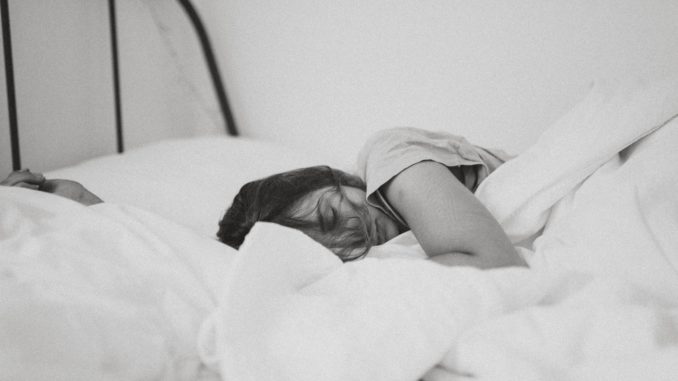
You may think you feel fine, but sleep deprivation undermines you on the job. This is what happens to your brain when you work on less than six hours of sleep
This is an edited version of an article which appeared on the HuffPost website, by Monica Torres.
Too many employees are tired zombies, going to work sleepless. The Centers for Disease Control and Prevention, which recommends between seven and nine hours of sleep each night for adults, has found that one in three adults are falling short of this target. In a 2016 CareerBuilder survey of 3,200 employees, one–in-five said they averaged five hours of sleep, or less, a night.
Yet many of us are unaware of the effects of sleep deprivation.
“If you got fewer than seven hours of sleep last night, you are a little bit sleep-deprived. You will probably deny that and say, ‘No, I’m fine’ – but if we were to bring you into one of our sleep labs, and have you do some performance tests, we would be able to see that you are not as good at doing those as when you are fully rested,” says Jeanne Duffy, a neuroscientist and associate professor of medicine at Harvard Medical School in the Division of Sleep and Circadian Disorders.
And once sleeplessness becomes a pattern, you may not even realise you are impaired. “Let’s say you are getting eight hours of sleep a night and then you suddenly start getting six. You really notice it on the first day or two after that – and then you stop noticing it,” Jeanne says of chronic sleep deprivation. “And it’s not because you’re not impaired by it; it’s because you sort of have a new frame of reference.”
But there are real trade-offs you make when you forgo sleep. When you stay up too late binge-watching a TV show, or worrying about your job, or taking care of a child, your performance at work the next day is compromised in a number of ways.
1. You’re distracted
Are you repeatedly switching from tab to tab on your browser, unable to focus on your work? That could be a response to sleep deprivation, Jeanne explains. One way your brain tries to keep you awake “…is to constantly look for distractions. That will impact your ability to focus on a task and be able to do that task,” she says.
2. You’re anxious
Too little sleep and the world can feel like a minefield of danger the next day. If you feel on edge at work, lack of sleep may be the source. Researchers at the University of California, Berkeley, had 18 people come into their sleep lab for a night of normal rest, and then a night of total sleep deprivation. After the night of sleep deprivation, anxiety levels in participants were 30% higher, with half of the participants reaching the levels reported in individuals with anxiety disorders.
3. You’re angrier
It only takes a few lost hours of sleep for your mood to change for the worse. In a 2018 Journal of Experimental Psychology study, by Iowa State researchers, 142 community residents were randomly assigned either to maintain their regular sleep routine, which averaged almost seven hours of shut-eye a night, or to sacrifice sleep. The second group, which got about four-and-a-half hours, reported more anger and distress over everyday nuisances, like an uncomfortable shirt or a barking dog.
4. You’re less patient with colleagues
“It makes us short-tempered,” Jeanne says about sleep deprivation. If you’re in charge of others at work, it is imperative for you to get enough rest in order for you to be a good manager. A 2017 study led by management researchers Cristiano Guarana and Christopher Barnes measured the sleep of 40 managers and their 120 direct reports, and looked at the quality of the relationships between them during the first three months of working together. They found that, when the boss was sleep-deprived, management-worker relations suffered. Bosses were less patient and more irritable, and employees reported worse interactions. “When people are sleep-deprived, or suffer lower quality of sleep, the prefrontal cortex of their brain suffers an especially detrimental effect. This is the region that is responsible for self-control,” Barnes said in an Academy of Management Journal video on how sleep influences work behaviour. “Sleep-deprived people, or people who have poor quality of sleep, are less effective at using self-control to guide their own actions.”
5. You take bigger risks
Chronic sleep restriction can alter your behaviour in less obvious ways, by driving you to make riskier decisions, according to a 2017 Annals of Neurology study. Researchers compared the decision-making of men aged 18-28 who got only five hours’ sleep per night for a week, with another group who had a restful eight hours of sleep a night. They were asked to choose between the safe option of receiving a set amount of money, or gambling on a higher amount that could become no money if they lost; the more sleep-deprived participants were more likely to gamble on the riskier choice.
Don’t forget to follow us on Twitter, or connect with us on LinkedIn!

Be the first to comment